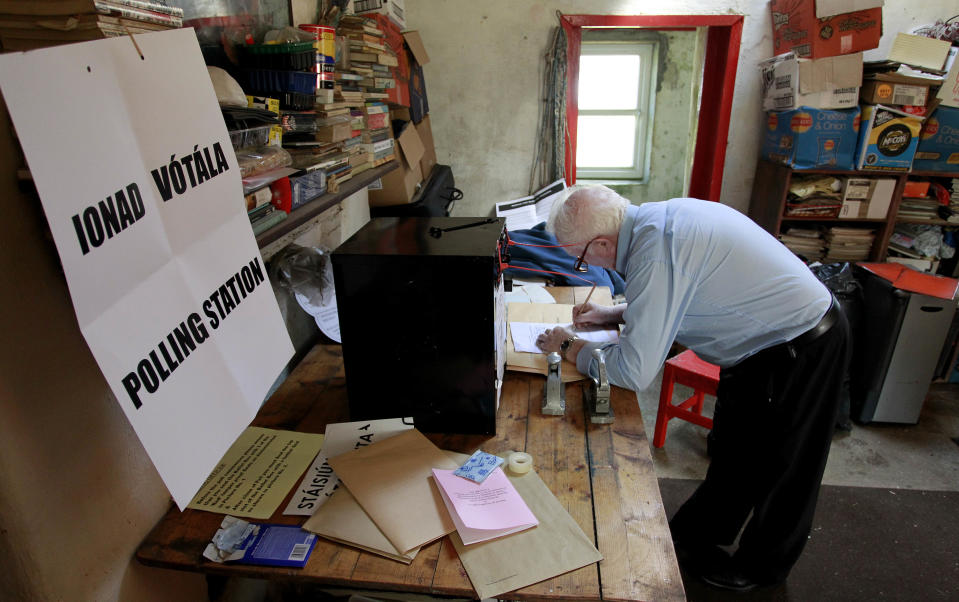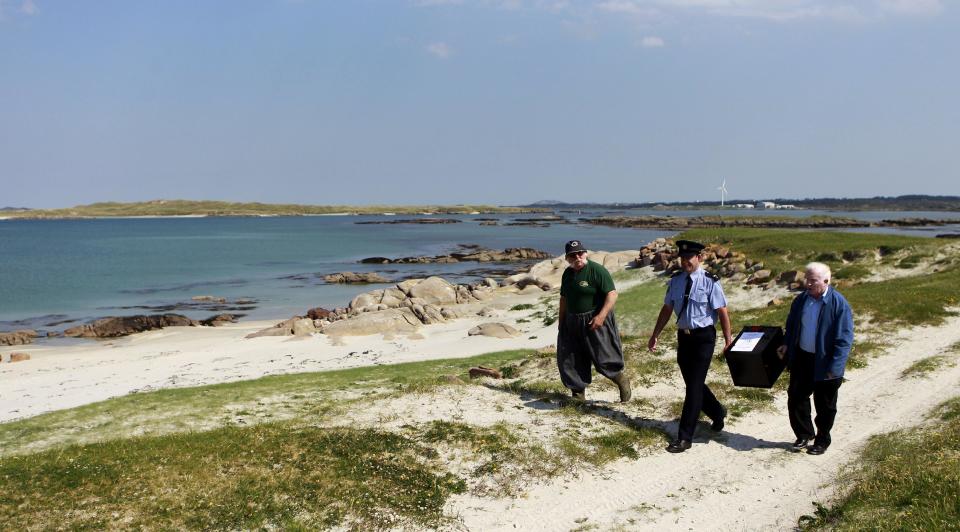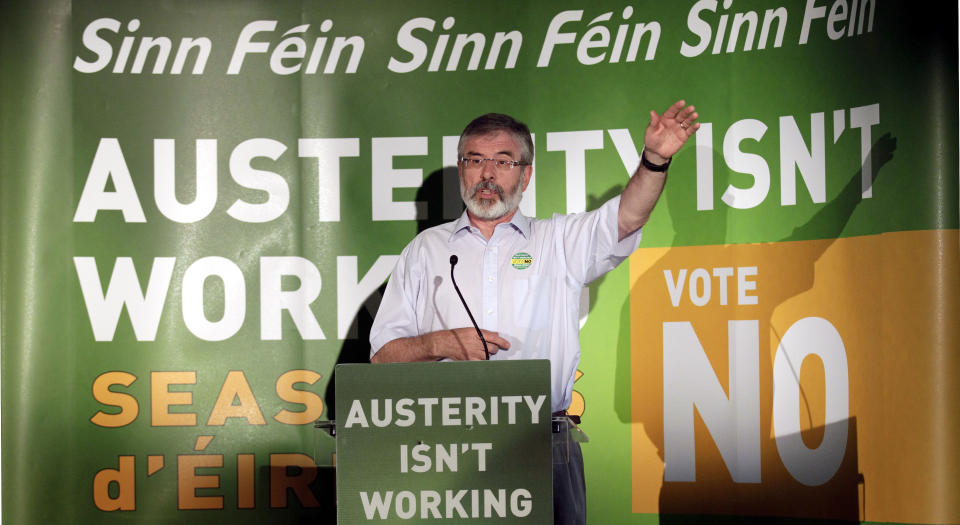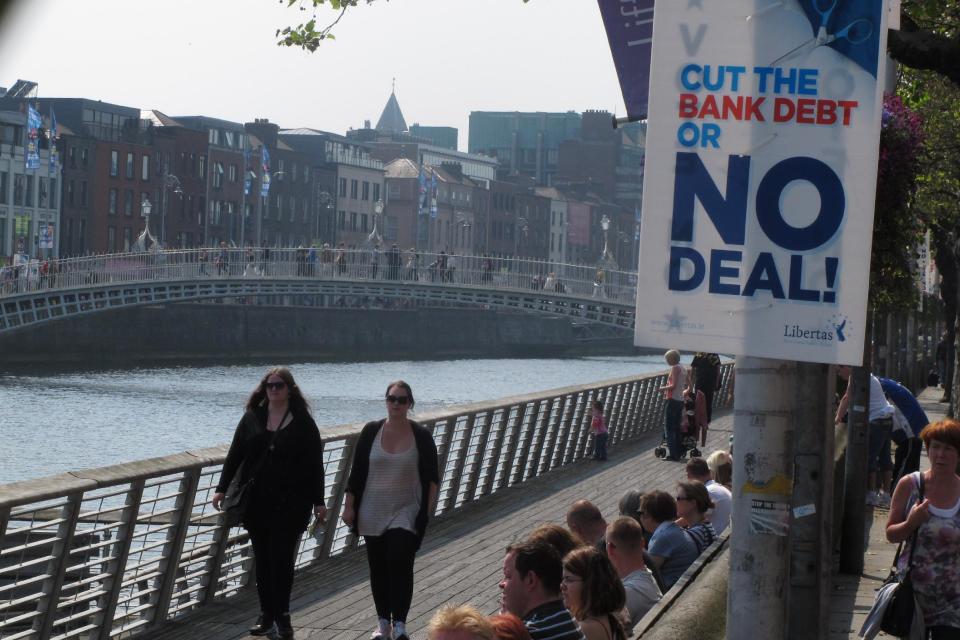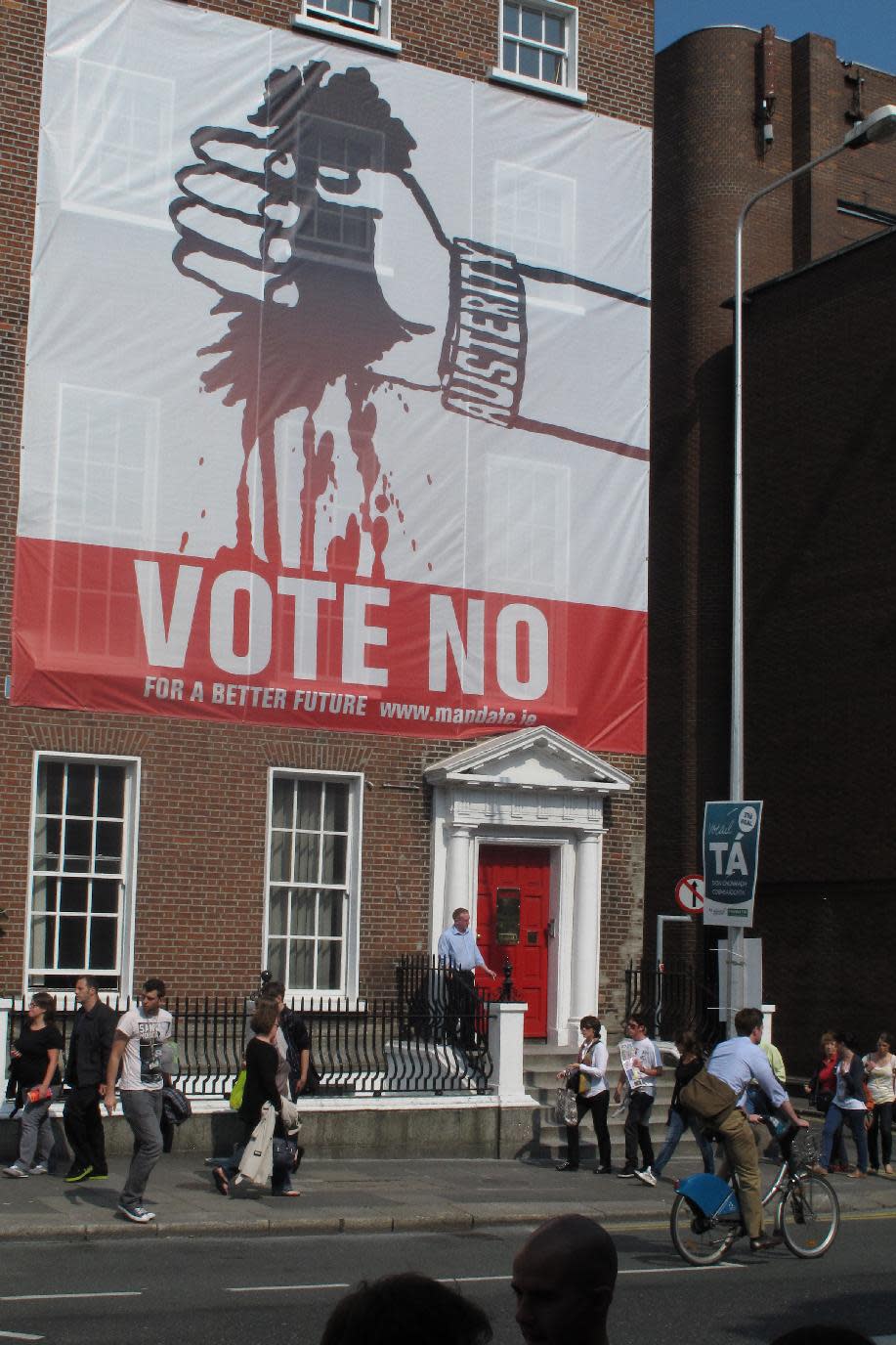Irish leaders trade barbs as EU treaty vote nears
DUBLIN (AP) — Rival Irish leaders traded insults and accused each other of lying to the public on Tuesday as a high-stakes vote on the European Union's fiscal treaty neared.
Both sides sharpened their attacks on what was the last full day for politicians to speak to Irish television and radio before Thursday's referendum on ratifying the treaty. Irish broadcasters impose a voluntary ban on discussing referendums the day before any vote.
Prime Minister Enda Kenny accused the Irish nationalist Sinn Fein party of lying about Ireland's need to slash its annual deficits and keep its future options open for bailout loans from European Union partners. And Kenny defended his campaign-trail refusal to debate directly with Sinn Fein leader Gerry Adams.
"I am not going to be shoved around by Sinn Fein," Kenny said. "I am not going to give a platform to somebody who I don't regard as the leader of the opposition, to propagate what are blatant lies and hypocritical assertions."
Adams countered that the government was trying to scare voters into believing that Ireland would "fall off the end of the world" if it shoots down the treaty. He insisted Ireland would be better off, and argued that an Irish "no" would force the entire 17-nation eurozone to rethink its austerity strategy.
Ireland is the only one of 25 nations putting the EU's deficit-fighting agreement to a national vote. Results are expected Friday night.
Crucially, the treaty says rejection would block Ireland from tapping the EU's future emergency loan fund when its existing bailout loans run out next year. Anti-treaty campaigners dismiss that as a bluff.
A series of polls during the past month's campaign suggest that the government and pro-treaty voices should win. But analysts say the verdict could be swung either way by a large minority of people who say they haven't made up their minds yet, but are angry at the government.
The treaty, signed by Kenny in February, commits all ratifying members to achieve budget deficits of less than 0.5 percent of economic output. Ireland last year posted an EU-leading 13.1 percent deficit and expects at least three more years of stern austerity just to get back below the EU's existing deficit limit of 3 percent.
Anti-treaty campaigners argue that the tighter deficit rule would bind Ireland to even more years of austerity. They say Ireland instead should default on debts at five nationalized banks, the very scenario that Ireland has spent four years and tens of billions of euro to avoid.
Bank-bailout costs overpowered Ireland's own fund-raising muscle in 2010 and forced the once-booming country to negotiate a €67.5 billion ($90 billion) loan package from the EU and International Monetary Fund. Those funds will run out by late 2013.
Kenny contended that Ireland's already battered credit rating would face further downgrades if the public rejects the treaty. He said that would make it harder, if not impossible, for Ireland to resume borrowing normally on bond markets next year as it wants to do.
He and other party leaders accused Sinn Fein of exploiting an election-law loophole to gain a disproportionate share of media time.
As the only significant party campaigning against the treaty, Sinn Fein has seen its public profile and voter support surge in recent weeks to record opinion-poll high of 21 percent, making it the second-most popular party in the Republic of Ireland for the first time. Ireland's referendum law requires both sides of an issue to receive equal time on TV and radio.
Sinn Fein also held its annual conference Saturday and Adams' hour-long speech was shown live on Irish state television RTE. Because Adams spent four minutes specifically discussing his party's opposition to the treaty, RTE gave Kenny a four-minute window Sunday to make his own live statement.
Micheal Martin, leader of the main opposition Fianna Fail party, unusually has supported the government side. He says Ireland cannot risk closing the door on a second bailout from EU funds, which would be far cheaper than what private creditors would provide.
Martin warned voters they would be undermining the whole nation if they used the referendum to attack Ireland's government. "Voting 'no' just because you are angry doesn't advance your position," he said.
___
Online:
Irish think tank's pro-treaty site, www.iiea.com/stabilitytreaty
Sinn Fein anti-treaty site, http://www.voteno2012.ie/home2
